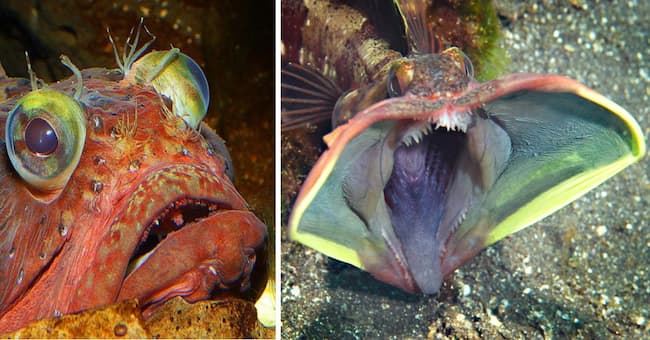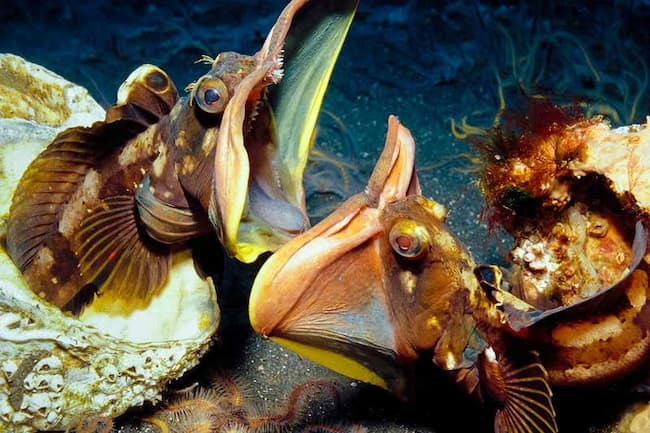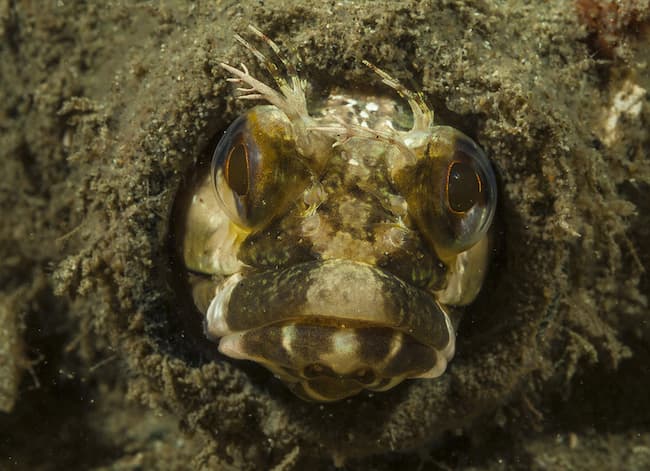The Sarcastic Fringehead (Neoclinus blanchardi) carries a name as intriguing as its attitude, a creature both curious and cryptic. This enigmatic little fish boasts the ability to intimidate creatures much larger than itself merely by distending its mouth – a spectacle wider than its head or even its entire body, for that matter.

Discovered in 1858, this fiercely assertive fellow grows only to about 30 centimeters (12 inches) in length, featuring a long and slender body, large pectoral fins, and much smaller pelvic fins. It calls the Pacific waters home, residing off the coast of North America, from San Francisco, USA, to Baja California in Mexico.
The Sarcastic Fringeheads are ambush predators, strategically selecting a hidey-hole that provides both protection and a vantage point for pouncing on prey. Once snug in their chosen nook, they aggressively charge at anything that dares to venture too close – including unsuspecting divers. Survivors of such encounters testify that these creatures are not inclined to let go easily.

Indeed, these fish have earned a reputation as formidable combatants. When two Fringeheads engage in a territorial dispute, they press their swollen mouths together, creating the illusion of a kiss. However, in reality, they are determining the larger fish, or more precisely, the one with the larger jaw, establishing dominance and securing the best territory for mating opportunities.

Subsequently, the female lays thousands of eggs in the prized location, and the male fertilizes them. He then defends his offspring with yet more oral aggression.
Research from marine biologist Watcharapong Hongjamrassilp suggests that Fringeheads employ the vibrant colors of their mouths for communication among themselves. Yet, despite their visual language, they don’t seem to convey many pleasant sentiments.
As for the peculiar name, ‘Fringehead’ alludes to the floppy folds of tissue cascading over the fish’s eyes, while ‘sarcastic’ is believed to either signify the animal’s sardonic closed-mouth expression or stem from the Greek word ‘sarkazein,’ meaning ‘to tear flesh.’
Well, either interpretation could hold true – just take a look at this.

